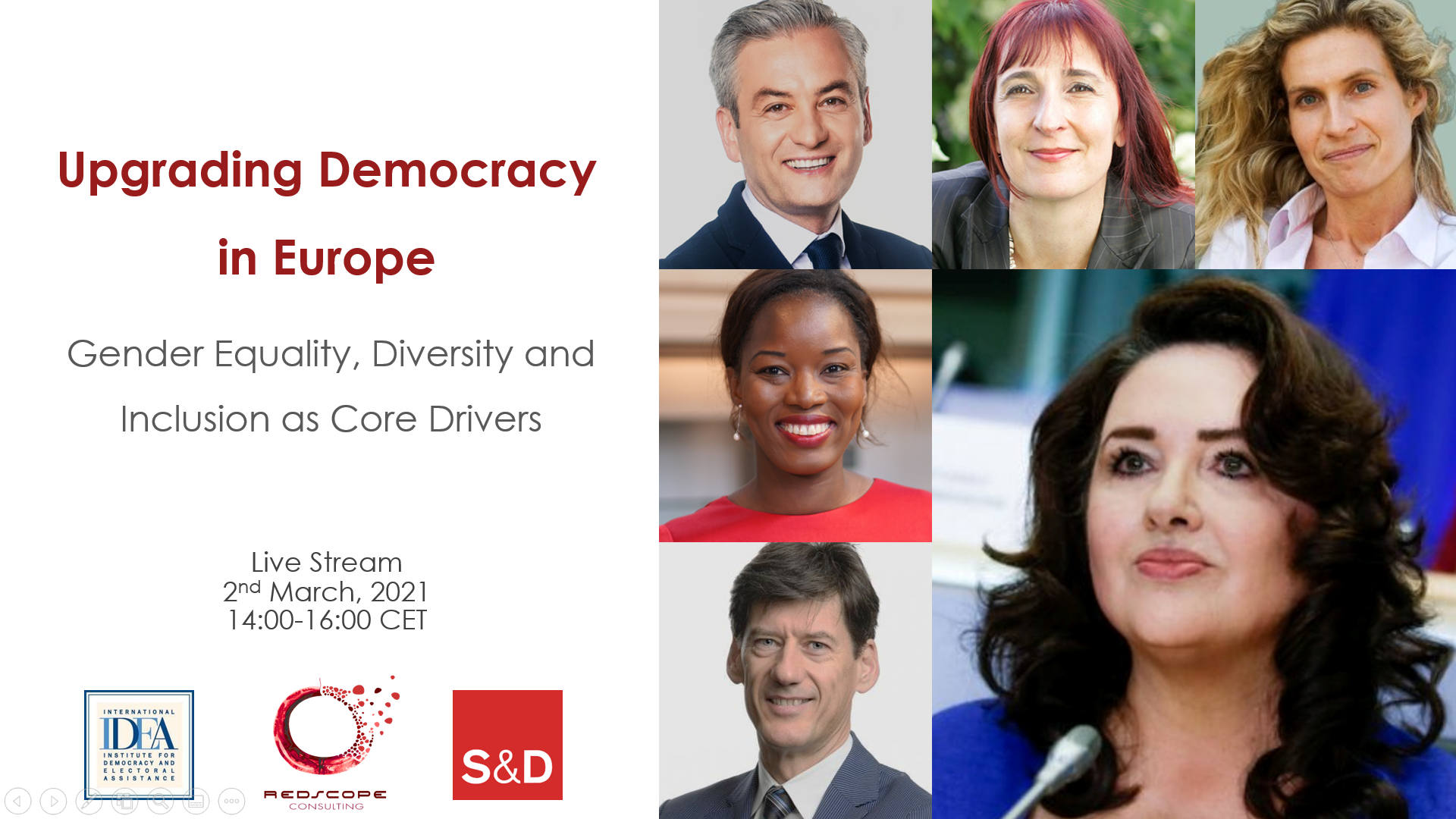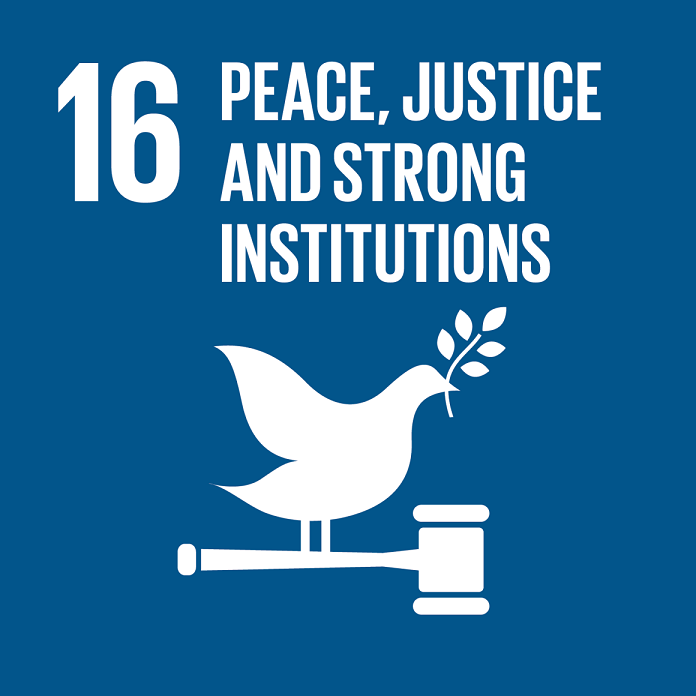Senior Experts Dialogue: Upgrading Democracy in Europe: Gender Equality, Diversity and Inclusion as core drivers

You are cordially invited to this cross-sectorial conversation among senior actors in Brussels to discuss how Gender Equality, Diversity and Inclusion are at the core of Europe’s Democratic future, share good practices from the Covid-19 pandemic experience, and recommend priorities for the post-pandemic recovery phase.
Keynote Address by: Helena Dalli, European Commissioner for Equality
Other Speakers:
Robert Biedroń MEP (S&D, Vice President of FEMM Committee, EP)
Claudia de Castro Caldeirinha (CEO REDSCOPE Consulting)
Marilyn Neven (International IDEA)
Assita Kanko MEP (ECR)
Dirk Van Gerven (Managing Partner, NautaDutilh)
#SheLeadsEU
Agenda
14:00-14:05 Welcoming Words
- Robert Biedroń MEP, S&D and Vice-Chair of FEMM Committee, European Parliament
Gender Equality and Inclusive Leadership: Why gender equality & diversity are at the core of EU democracy in 2021
14:05-14:25 Opening Address
- Helena Dalli, European Commissioner for Equality
14:25- 14:30 Setting the Stage
- Claudia de Castro Caldeirinha, Leadership Professor and Director of Redscope Consulting
The Cost of Exclusion: Why the EU urgently needs to focus on Gender Equality and Diversity & Inclusion
14:30-14:35 Presentation
- Marilyn Neven, Programme Manager, International IDEA's Europe Programme
Introduction on global lessons and practices on gender equality and inclusion against the backdrop of Covid-19
14:35-15:45 Senior Experts Facilitated Dialogue on focus questions
Best practices & What’s next - Priorities to boost a gender-balanced and overall inclusive recovery agenda in Europe in 2021 and beyond
- With the kind participation of Assita Kanko MEP (ECR) and Dirk Van Gerven (Managing Partner, Nautadutilh).
- Dialogue with Senior Experts
15:45-16:00 Conclusions and Closing remarks – organisers
Context
Gender equality and the inclusion of diverse minority groups are more important agenda priorities in Europe than ever before. They represent values at the core of democratic standards in the 21st century and test the capacity of the European Union to live up to its motto: United in Diversity. The pandemic has exacerbated several structural divides, including for women and minority groups. Many women, especially those on the front lines, have experienced a deterioration of life conditions and of their access to political, social and economic participation. Minority groups struggled for equal rights and opportunities even more than before the pandemics, including ethnic, racial and religious minorities, LGBTIQ+ and persons with disabilities.
While the emergency situation required flexible policies and measures in Europe and globally, gender equality, diversity and inclusion were not always part of the policy considerations that shaped EU and national responses to the crisis. Disregarding these agendas for the development of post-pandemic priorities will come at a price, as recent situations of social unrest illustrate. The EU and member states need to understand the strategic imperative of equality, diversity and inclusion,
and make sure that all women and men of different backgrounds are part of the reconstruction plans and related decision-making. This will help to build sustainable democracies and more equal prosperity.
Objective of the online event
This event will bring together decision-makers and senior actors in various sectors on the Brussels international scene to discuss how gender equality, diversity and inclusion are at the core of EU’s democratic future, starting from sharing best practices from the Covid-19 pandemic and prioritizing next steps for post-Covid recovery phase. Similar to prior events on inclusive leadership and gender equality, participants are invited to participate actively in a discussion around several focus questions (listed below) to inspire concrete actions across sectors, synergies and EU initiatives.
Focus questions
A. Good Practices in gender equality, diversity and inclusion:
- what has worked best during the pandemic crisis in terms of policies and initiatives?
- What effective responses were developed during the pandemic in Europe to protect women from the disproportionate negative impact of Covid-19 (politically, economically, etc.)?
- What can we learn from these experiences?
- What effective responses were developed during the pandemic in Europe to protect minorities (racial, ethinc, religious, LGBTI+, etc)?
- What can we learn from these experiences?
B. How can gender equality and inclusion be championed within Europe (EU and member states)?
- How to ensure a gender-balanced and overall inclusive recovery (care systems, entrepreneurship, political representation, social protection, budgeting, etc.)?
- How is the EU Gender Equality Strategy 2020-2025 being translated into policy and concrete actions at various levels in the EU and its member states? How can the different sectors contribute to fostering these goals and strategies? What can they do to advance inclusive political and economic leadership?


